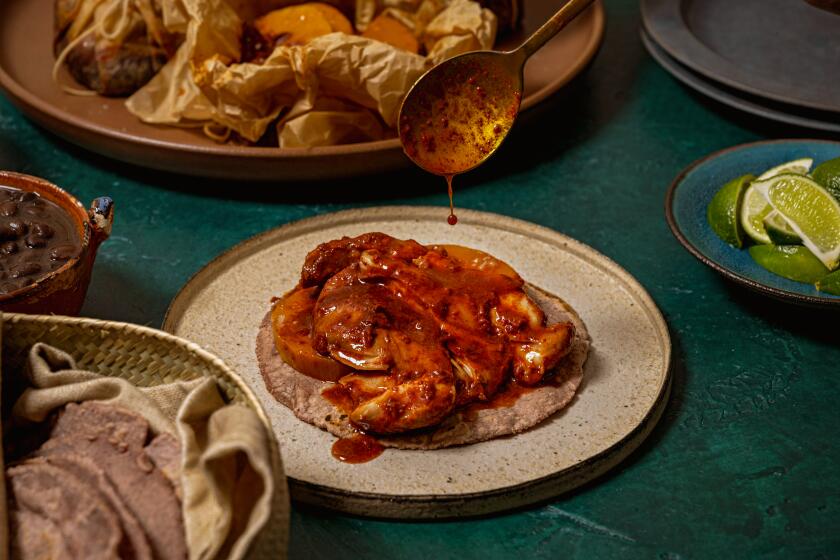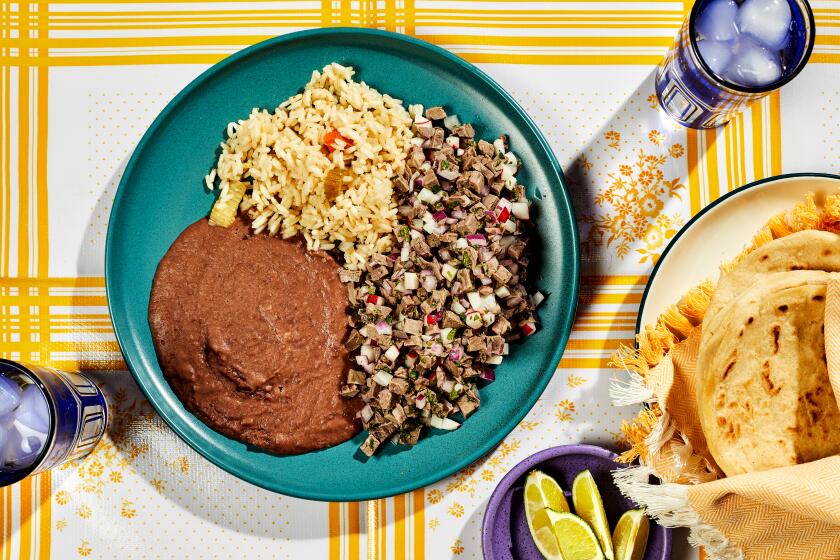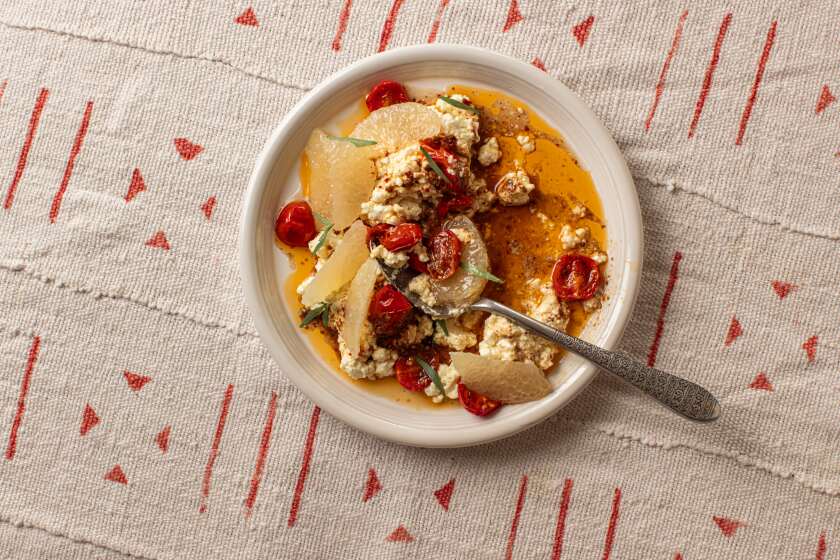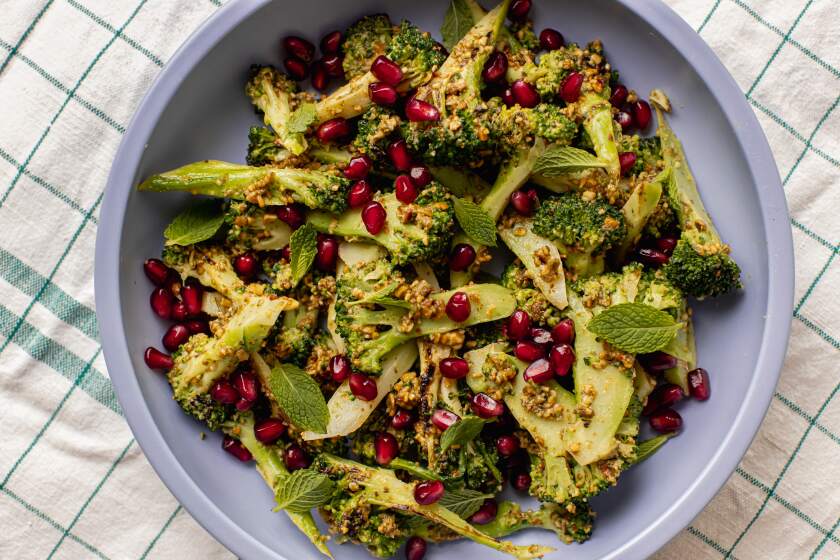Acorn squash tamales
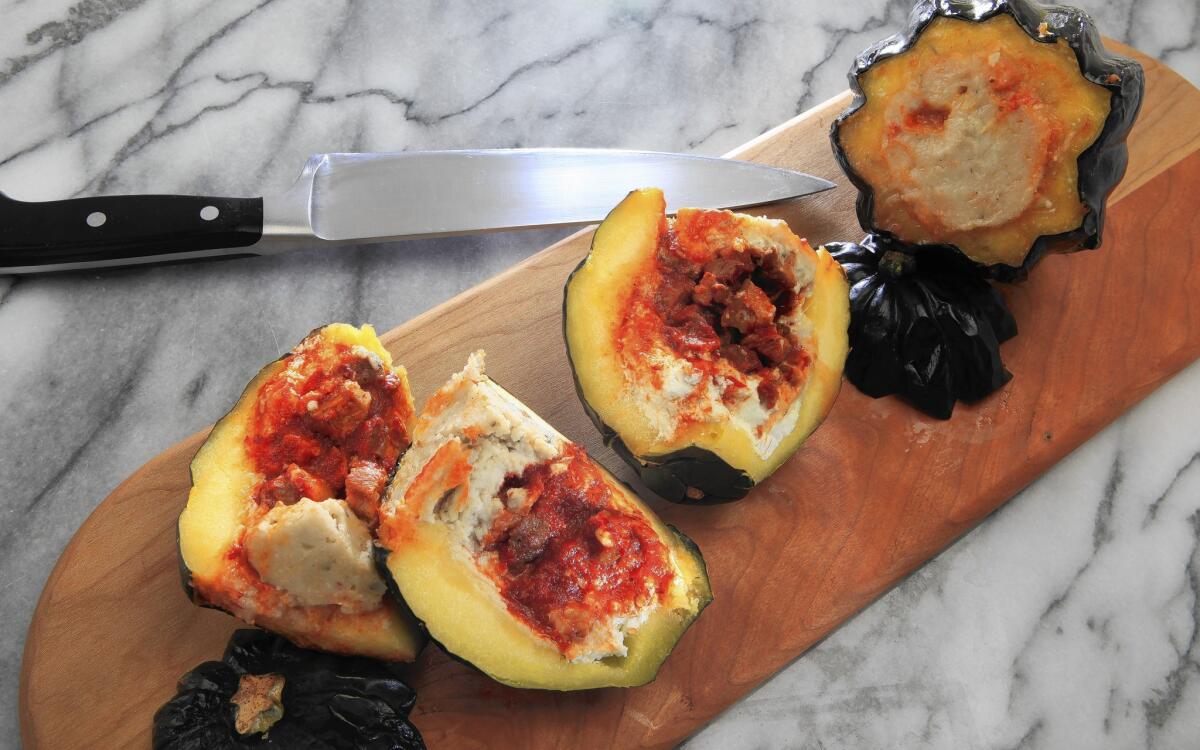
- Share via
The essence of any tamale is to steam cornmeal masa inside a flavorful, fragrant wrapper, which in Mexico is usually corn husks but also, particularly in Oaxaca, big squares of banana leaf. So why not use a steamed and hollowed-out whole acorn squash as the container for masa and diced roasted pork shoulder in a guajillo chile sauce? You can substitute other meat fillings, a vegetarian filling such as the diced-zucchini mixture known as calabacitas or crumbled cotija cheese or goat cheese; and you could make larger squash tamales in small hollowed-out sugar pumpkins or even larger, longer winter squashes halved lengthwise.
From the story: At Rivera, modern takes on classic Latin dishes -- taco cart optional
Guajillo chile sauce
Bring a medium saucepan of water to a boil. Add the chiles and cook gently until tender, 15 to 20 minutes. Drain well. In a separate pan, combine the broth, garlic and onion. Bring to a boil, add the drained chiles and simmer briskly until the onion is tender, about 10 minutes. Remove from the heat and set aside to cool about 10 minutes. Then, working in batches if necessary, purée in a blender. Set aside in a bowl. The sauce can be made up to 3 days in advance; cover and refrigerate until ready to use if making ahead of time.
Seared pork
Season the chops generously on both sides with salt and pepper. Heat a sauté pan over high heat. Add the oil and, when it is hot enough to smoke slightly, swirl it evenly around the pan and then carefully place the pork chops in the pan. Sear until deep brown and crusty, about 3 minutes per side. Transfer to a plate and set aside until cool enough to handle.
With a sharp knife, cut the seared pork chops into one-fourth-inch cubes. Put the cubes in a bowl. Add enough of the chile sauce to coat them generously and stir well. You will probably not use all of the chile sauce; save any extra for another use, covered and refrigerated. Set aside or cover and refrigerate up to one day in advance until ready to use.
Bring several inches of water to a boil in the bottom of a stove-top steamer or a saucepan with a steamer basket that fits neatly on top of it. Meanwhile, using a sharp serrated knife, carefully cut off about 1 inch from the top of each squash’s stem end. Place the squashes and their tops, both cut side up, in the steamer basket. Cover and place the basket over the boiling water. Reduce the heat to maintain a gentle boil, and steam the squashes until their flesh is just tender enough to be pierced easily with the tip of a small, sharp knife, about 15 minutes, taking care not to overcook them. Remove the basket with the squashes from the steamer and set aside until the squashes have cooled to room temperature.
Heat the oven 375 degrees.
Meanwhile, assemble the tamales: Use a sharp-edged spoon to scoop out the seeds and fibers from the center of the squashes. Generously salt the cavities and cut tops of each of the squashes with one-fourth teaspoon salt, or as desired. Divide the goat cheese among the squash, placing half in the bottom of each squash cavity. With the back of an oval serving spoon, evenly spread about 2 tablespoons of the prepared masa per squash along the sides of the cavities. Evenly distribute the pork-and-chile mixture between the squash cavities leaving clearance at the top of the cavity for more masa; depending on the size of the squash, you may not use all of the pork-chile mixture. Top the pork in each squash with the rest of the masa, spreading it evenly. Replace the top on each squash.
Put the filled squashes right side up in a loaf or baking dish just large enough to hold them. Bake until the interior of the pork filling in each tamale registers 165 degrees on an instant-read thermometer, about 25 minutes if the fillings are room temperature or warm, and up to an hour if the fillings are cold.
Carefully transfer each squash to a serving bowl just large enough to hold it upright. Serve immediately, accompanied by enough spoons for everyone to share; or, remove the lid and use a sharp knife to cut each squash vertically into individual portions.
Get our Cooking newsletter.
Your roundup of inspiring recipes and kitchen tricks.
You may occasionally receive promotional content from the Los Angeles Times.










